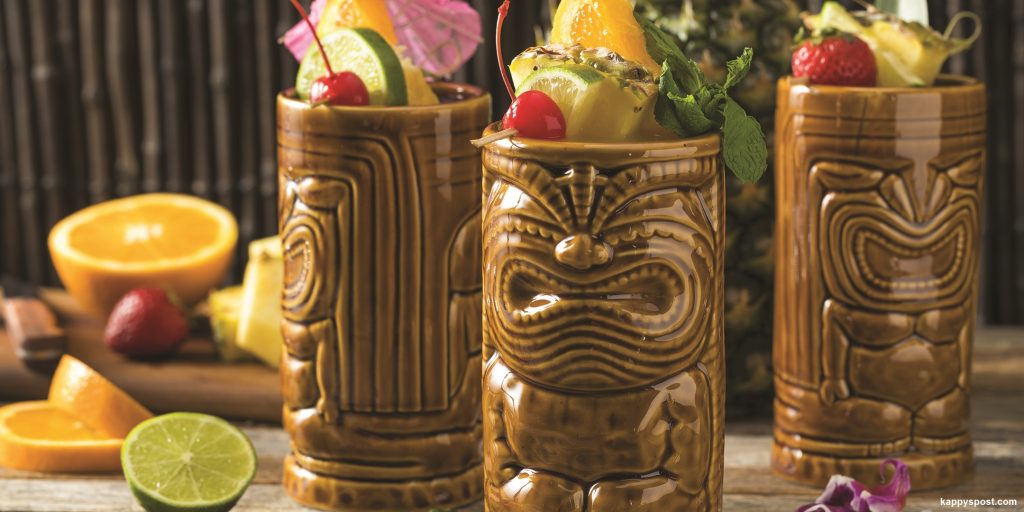[:en]50 shades of Rum: Tiki mixing and its secrets[:]

[:it]by ANNA TAMBURNINO
You will certainly have heard of the so-called "Tiki cocktails", now trendy and on everyone's lips, but are you sure you know what they are?
If someone asked you, you would probably have serious difficulty answering, even though you have certainly ordered and drunk these cocktails millions of times, perhaps without even knowing that they were part of this particular category.
This is because there is a lot of confusion about it, especially due to the fact that it is often associated with that of Tropical cocktails, which in reality is completely different. Tiki mixing, considered the most difficult of all time, is technical, research, balancing and is diametrically opposed to the traditional simplicity of Tropical preparations.
The confusion, however, is plausible, as neither of the two mixtures belongs to our culture, and derives from a wrong approach that often affects Tiki both from the point of view of composition and in its social involvement. But it is also clear that often those who try to spread it do not do so in the correct way.
To begin to clarify, let's start from the name that suggests its origins: the word "Tiki" is in fact a Polynesian word with different meanings. Tiki was born around the 1930s precisely from the need to experience an exotic climate, dreamed of and desired by Americans after the nightmare of Prohibition and the Great Depression. An innovative way of drinking in which Rum is the undisputed protagonist. But, as well as a style of mixing, Tiki can be considered a real world that proposes in a "pop" key the exoticism of the islands of the South Pacific - that area of Oceania included in the triangle between New Zealand, Easter Island and the Hawaiian Islands – and which was born with the intention of satisfying the desire to escape from everyday reality. It is no coincidence that this movement began with the opening, in 1931, of Don the Beachcomber, the first Polynesian-themed bar-restaurant opened in Hollywood by Donn Beach, considered the father of "Tiki culture".
In his powerful Rum-based potions Donn Beach revives the most ancient exotic traditions, learned during his travels around the world, especially between the Caribbean and the South Pacific.
The premises of Trader Vic, another great exponent of the movement, also gave a strong boost to the spread of Tiki mixing after the Second World War. The two are the authors of numerous cocktails, copied and imitated all over the world, of which the most legendary are lo Zombie of Donn Beach and the Mai Tai by Trader Vic.
The fortune of the Tiki, after over 25 years of boom, began to decline in the Seventies, only to return to prominence in the early years of the new century. Today it is in fact very popular and arouses curiosity more than ever, so much so that in Turin an event entirely dedicated to this type of mixology is scheduled for this summer, probably around mid-July. In short, whether you are already a Tiki enthusiast or have only just discovered it, don't miss this exotic event![:]
